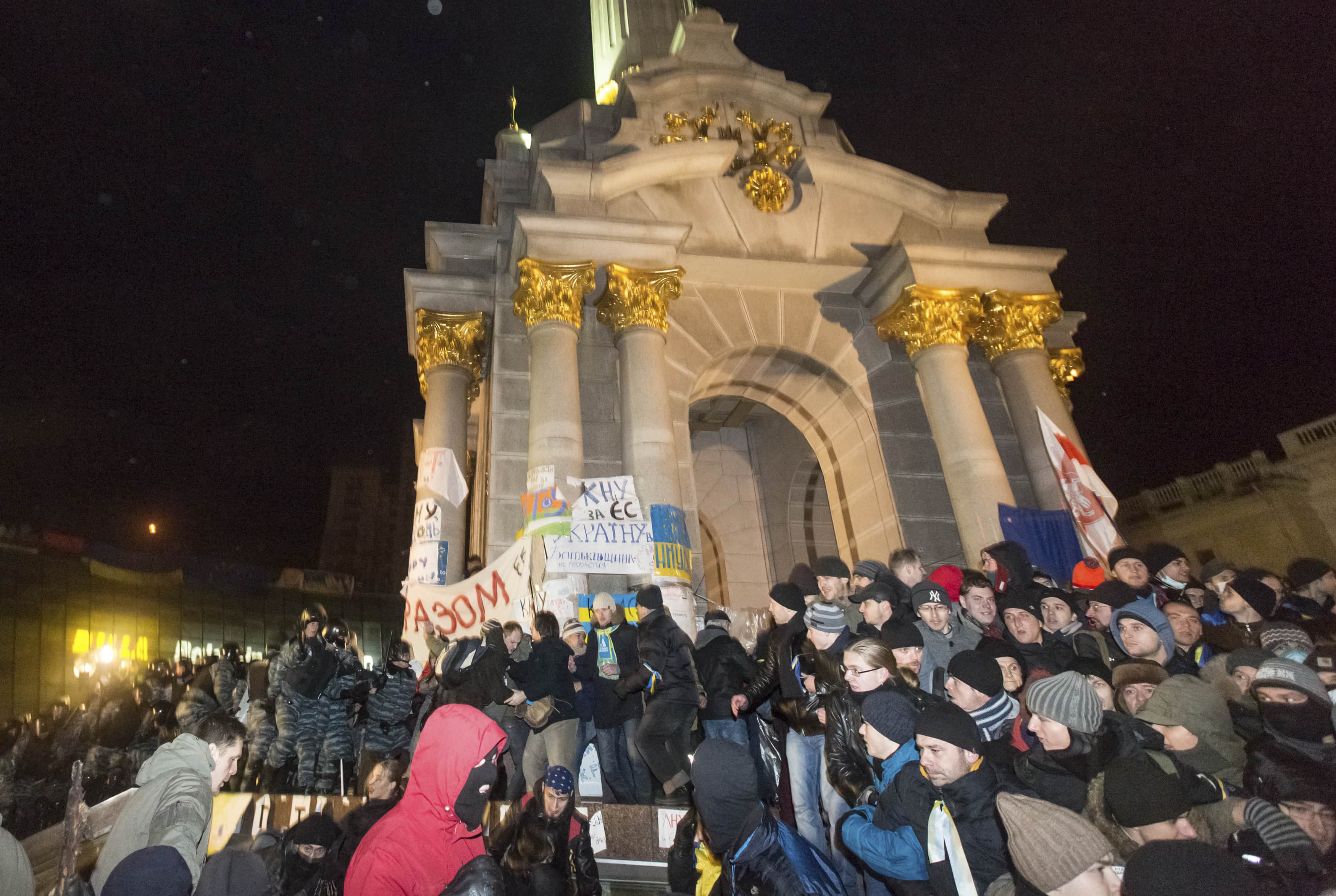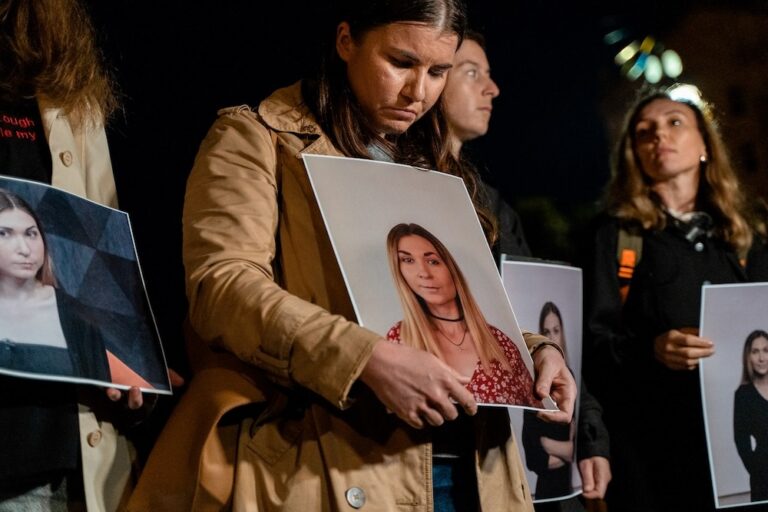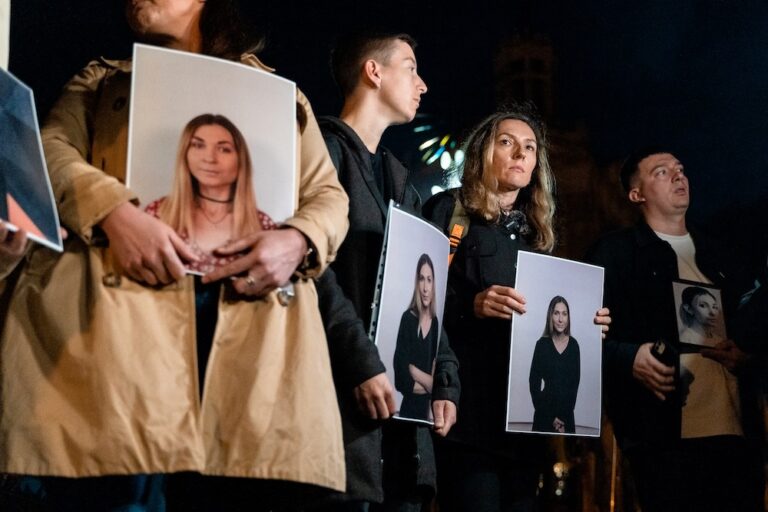Media workers in Ukraine have been injured by rocks, flash grenades and gas pellets in their attempt to cover mass demonstrations against the reversal of President Viktor Yanukovych's decision to sign trade agreements with the EU.
You’ve most likely already seen it: the photo of a man with a head wound, covered in his own blood, photographing a group of riot police officers. The image of Reuters photographer Gleb Garanich has become symbolic of the violent crackdown on the protests in Ukraine that began on 21 November. The attacks on protesters and journalists trying to cover the events are now the subject of international attention.
Students, activists, and opposition supporters first gathered to protest – in increasingly large numbers – the reversal of President Viktor Yanukovych’s decision to sign a series of trade agreements with the European Union. According to the Committee to Protect Journalists, the agreements were intended to improve economic and political ties with Europe and to effect democratic reforms. To some Ukrainians, notes The New York Times, this translated into hope for the elimination of corruption and an improved standard of living. Instead, demands for more transparency are met with suppression – the riot police unit known as Berkut leading the way.
The demonstrations began intensifying on 28 November, the date Yanukovych was scheduled to sign the agreements at the Eastern Partnership Summit in Vilnius, Lithuania. Journalists gathered to document protesters’ calls for Yanukovych’s impeachment, and their demands for a revolution. Unfortunately, many media workers were halted in their tracks by the actions of the police; their reports incomplete.
In the past few days, more than 50 journalists across the country have been attacked, and many have had their reporting equipment destroyed by police and protesters, according to The Media Law Institute in Kyiv. Videos posted by Euronews, The New York Times, and other media outlets show how violent the attacks have been; according to Kyiv-based magazine Telekritika, most injuries have been the result of gas pellets, flash grenades, and rocks.
“According to our analysis of situation, it seems like many journalists were beaten deliberately by police, and journalist IDs did not help,” wrote the Kyiv-based Institute of Mass Information (IMI) in an e-mail to IFEX on 3 December 2013. Their staff have been providing direct support to journalists, handing out press helmets, glasses, jackets and respirators, and creating a centre where media workers can access legal aid.
But local efforts alone will not be enough to counter the violence unleashed in response to the protests, says IMI. The press freedom group is urging international organisations and IFEX members to pressure Ukrainian authorities, and to “bring those responsible for the attacks to justice”.
On 3 December 2013, the World Association of Newspapers and News Publishers (WAN-IFRA) wrote to President Yanukovych, calling on him to order “immediate, independent investigations into every case of violence and intimidation reported against journalists and media employees.”
On that same day, Index on Censorship, in conjunction with the Human Rights House Network, issued a statement asking Ukrainian authorities to ensure that “human rights NGOs and journalists are able to monitor assemblies and report on police violence without fearing retaliation”.
But non-governmental organisations are not alone in their criticism of the Ukrainian leader. President Yanukovych has also come under fire from political opponents for his decision to reverse the signing of the EU trade agreements. On 3 December 2013, the opposition tabled a motion of no-confidence, but the move was shortly defeated, falling short of the 226 votes required for approval, reports BBC News.
Protesters responded by blocking the central bank and vowing to surround additional government buildings. Demonstrations will likely continue as President Yanukovych tightens political ties to other Eastern European countries. The New York Times reports that on 2 December, the president announced that he would begin working to extend a strategic partnership agreement with Russia, to secure lower natural gas prices for Ukraine.



